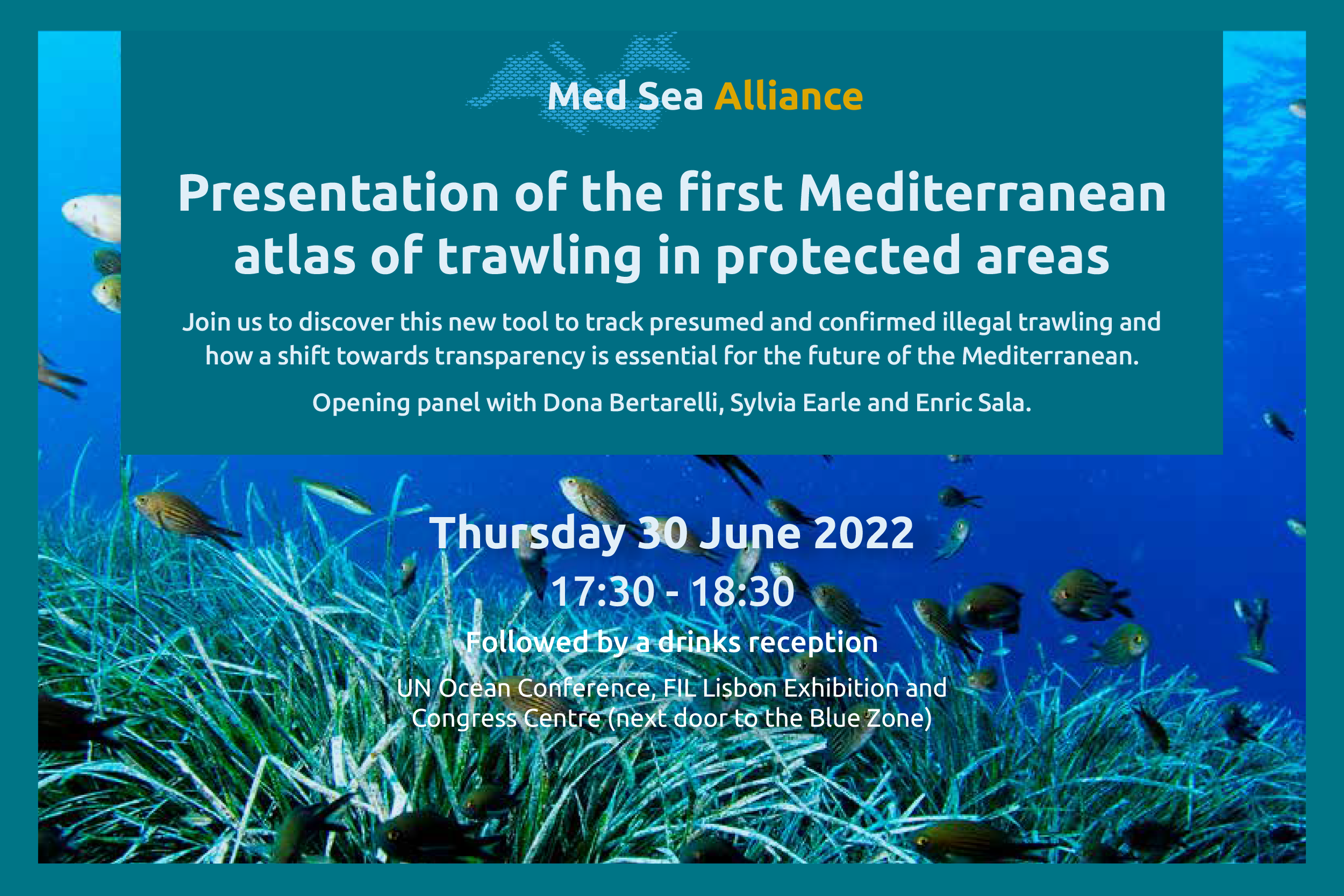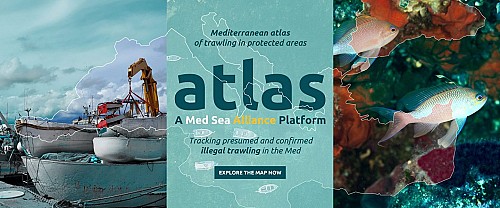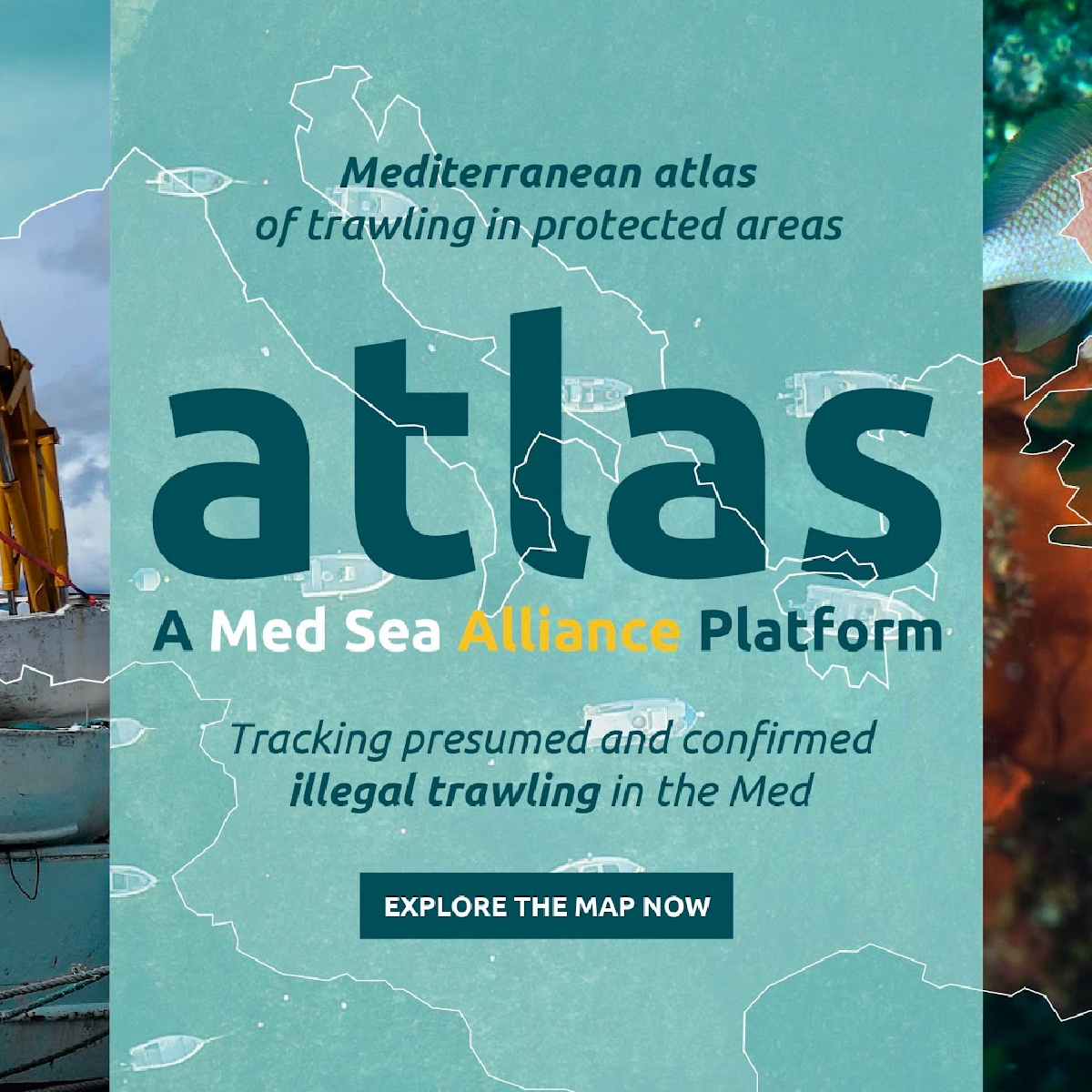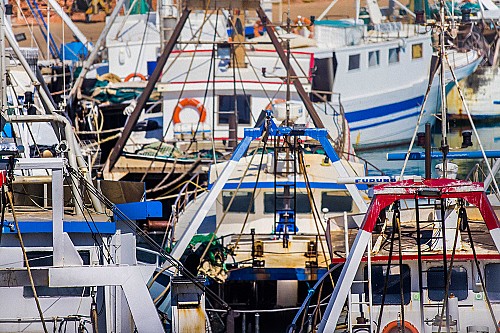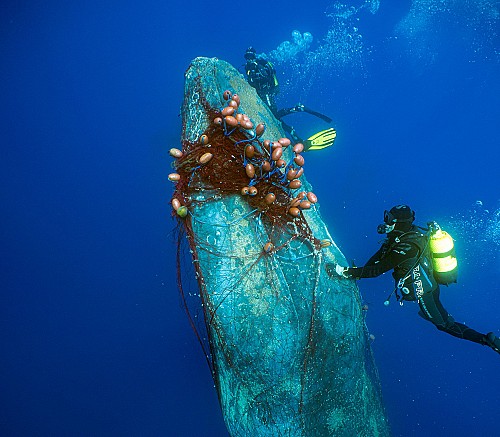Overfishing and illegal fishing remain serious problems across the world and in the Mediterranean. Despite demands, action, legislation, and policy, these are problems we seem unable to crack. Can protected areas and new technology break the cycle and bring about the change we need? A fundamental shift towards transparency and compliance in fisheries governance is critical to the future of the Mediterranean Sea.
Mediterranean Atlas
On 30 June, at the UN Ocean Conference in Lisbon, the Med Sea Alliance will present a Mediterranean Atlas of trawl fisheries in protected areas. The presentation is part of a wider event: Increasing transparency in fisheries to achieve SDG 14.
The Atlas provides a comprehensive mapping of areas where trawling is prohibited, as well as reported and suspected infringements. It can contribute to the fight against illegal, unreported, and unregulated fishing in protected areas, and also to raising awareness of the impact of bottom trawling.
The Med Sea Alliance
Marilles is a member of the Alliance along with Akdeniz Koruma Dernegi Archipelagos Institute, ClientEarth, Ecologistas en Acción, Environmental Justice Foundation, FishAct, Fundació ENT, Global Fishing Watch, MedReAct, Oceana, Project AWARE, Save the Med, Seas at Risk, and The Nature Conservancy.
The Med Sea Alliance brings together non-governmental organisations (NGOs) and other civil society groups. It was created in 2020 to improve the health of the Mediterranean and end destructive fishing practices and overfishing. Alliance members are a mix of local, regional, and international NGOs that work together. By sharing their diverse skills, strengths, and resources, they engage more partners and help the alliance become a catalyst for change.

